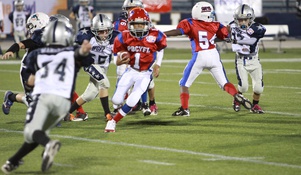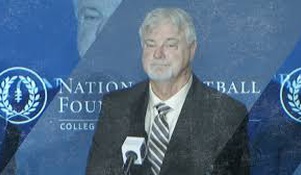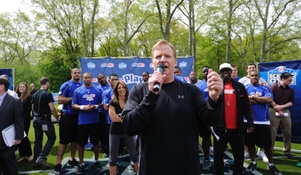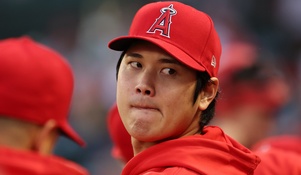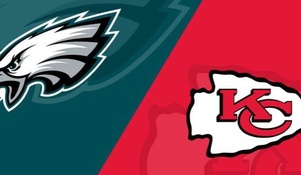Mike Florio's Pro Football Talk is Cheap on Concussion Lawsuits: Revisited
I wrote the following article in response to Mike Florio's article entitled "Disconnect grows between former, current players regarding concussions." Mike writes for Profootballtalk.com, which he created and owns. He is a well respected NFL analyst and he regularly appears on network and cable shows to break down the top stories of the day. Although it has been almost 4 years since we wrote our opinions about the concussion lawsuits and how the courts would view the arguments, I thought it would be interesting to revisit the things we said back then, because some of it is still relevant today. The one thing I would like you to take away from the article is the fact that former players were the ones that have been responsible for most of the changes that have been made to make the game safer for today's players. Our lawsuits and appearances before Congress, along with numerous stories in the media about players suffering from the effects of concussions were the impetus behind everything that has happened to save what I consider to be the "Greatest Show on Earth."
-----------------------------------------------------------------------------
Original article posted at the Jeff Nixon Sports Report - May 3, 2012.
In a recent article, Mike Florio, a writer for Pro Football Talk says “One of the biggest hurdles facing the former players suing the NFL for concussions suffered during their playing careers arises from the claim that the NFL failed to warn the players regarding the risks of concussions. The NFL undoubtedly will defend that specific allegation by arguing that, even if warnings had been issued, the players would not have stopped playing football. Supporting that contention will be the fact that no NFL player has retired due to fear of potential harm from concussions. Yes, some have retired due to the immediate consequences of multiple concussions. But no NFL player, current or prospective, has passed on playing football at its highest level due merely to the fear that the player may suffer one or more concussions that may cause problems for him later in life.”
Under Mr. Florio’s line of reasoning, let’s compare pro football to some other dangerous professions – and look at what those employees knew before and after they started working.
The police officer, firefighter and construction worker know that they can be seriously injured or even killed on the job, but does the fear of that happening stop them from entering their chosen profession? Of course not! So why would Mike Florio use this argument – for the NFL owners – as a defense against the claims of professional football players?
I don’t think that Mr. Florio looks at most pro football players as serious, rational human beings. In an article posted on PFT, he once said “We realize that football players often have a very linear approach to reality, and that problems typically are confronted by dropping a shoulder and running at them, full speed. In many situations, however, a more careful and reasoned approach is required.”
That’s a cheap shot!
So what does Mr. Florio think the retired player’s careful and reasoned approach should be to the issue of concussions? Should we hope and pray that the NFL will do the right thing and compensate retired players for the traumatic brain injuries they sustained while playing pro football? Should we try to negotiate a settlement outside of court intervention? Should we picket the games, or should we just lay down our arms, roll over and accept the premise that concussions are just part of the game; an acceptable form of collateral damage?
In his article, Mr. Florio also says that “Highlighting the fact that fear of concussions has yet to scare away incoming players is the arrival at the NFL level of receiver Nick Toon. The son of Al Toon, who ultimately left the game due to the debilitating effects of multiple serious concussions, Nick Toon will join the Saints.”
In my opinion, Nick Toon should split his signing bonus with his father. Al Toon and many other retired player advocates have done a lot to raise awareness on the issue of concussions. By doing so, retired players have helped to make the NFL world a better place to live and play.
I would also like to point out that there are many children of police officers, firefighters and construction workers that have followed in the footsteps of their fathers and mothers – even after their parents were injured and killed on the job. Despite that fact, Mr. Florio thinks that professional football players should just walk away from the game now that they know the risks.
I’m not saying that the job of a pro football player is as important to our society as a police officer or a fireman – because it isn’t. But that doesn’t mean we should be treated differently in a court of law. Those other professionals routinely file suit against the government and companies that are negligent in their responsibility to their employees, so why can’t retired players – without someone saying we wouldn’t have listened to warnings anyway?
The good news for active players is that the risks are getting smaller because the NFL has started addressing concussions and player safety in many different ways. For example, mandatory pre and post concussion testing, independent doctor analysis of player concussions, better equipment, rule changes, additional research and the list goes on. It’s not perfect, but it’s a start.
The new generation of players should be extremely grateful to retired players for raising public awareness about the problems associated with concussions. We took our message all the way to the halls of Congress – and now the courts. The only reason the NFL is making the game safer for today’s players, is because retired player made it an issue. That’s the retired player “Legacy” in action!
Dave Duerson and Ray Easterling are devastating examples of how far some players are willing to go to send a message to the NFL that something needs to be done.
All players know about the risk of injury from playing football, but that isn’t the issue in the court cases. The lawsuits allege that the NFL intentionally and fraudulently misled players who reasonably relied upon the NFL’s expertise about its own sport on the short-term and long-term risks posed by concussions and head trauma. Rather than warn its players that they risked permanent brain injury if they returned to play too soon after sustaining a concussion, the NFL actively deceived players, resulting in the players’ belief that concussions did not present serious, life-altering risks.
For the record, Mr. Florio doesn’t say that retired player’s claims lack merit, he just thinks that “….as players who now know all they need to know about the risks associated with playing football continue to flock to the NFL, it will be harder and harder to get a judge or a jury to accept that players would have walked away from the sport if they had known then what all players know now.’
Ultimately, the courts will decide if the NFL is guilty and therefore liable for damages, but I doubt that Mr. Florio’s proposed “walk away” defense for the owners will do much to sway a judge or jury.
In one of the comments posted, in response to Mr. Florio’s article, a fan said it best: “Seriously, if “they wouldn’t have listened anyway” is their [the owners] best argument, they better be stashing away settlement cash by the truckload now ’cause they are going to lose big with that reasoning.”
Mr. Florio has talked the talk, but retired players have walked the walk……. and we are not walking away from this issue.
Talk is cheap unless it’s backed up by deeds. In filing 65 lawsuits that cover over 1,300 former players, we are taking action. And yes, Mr. Florio – Sean Salisbury is right, there is strength in numbers.
There is no disconnect between current and former players on the issue of concussions as Mike Florio suggests in his article. We are united with active players in making the game safer. Retired players helped to connect the dots that show concussions lead to serious problems in later life and we are united with active players in making sure that the best medical treatment is available to past, present and future players.
Most retired players still love the game and we will continue to be ambassadors for the NFL, but that doesn’t mean we will just overlook the problems that occurred when we played the game. The lawsuits are not personal….they’re just business. It may surprise Mr. Florio, but the owners understand this and that’s why they invited some of the players that are suing them to announce the draft picks last week.
To be totally fair, the NFL has done some things that directly benefit the older generation of retired players who have developed symptoms that we believe are related to TBI (Traumatic Brain Injury). In the 2006 CBA they established the 88 Plan that pays for the care of former players that have developed Alzheimer’s, dementia and ALS. Although that was a good victory for former players, the NFL put language in that CBA making it clear that they do not admit in any way, shape or form that those illnesses resulted from concussions a player sustained while playing in the NFL.
In the new CBA, the League also created the Neuro-Cognitive benefit, but that benefit only covers players that are vested and have at least one credited after 1994, and it requires that any former player receiving the benefit sign a form agreeing not to sue the NFL now, or in the future. With a single stroke of a pen, they substantially reduced their future liability for concussion related lawsuits.
The League is going to fight the current lawsuits with everything they have, and whether we win or lose those individual battles, retired players can always take pride in knowing that we have already won the war. Retired player advocacy has improved player safety and has forever changed the way that concussions are handled by the NFL.
The victory did not come cheap. Some players have paid the ultimate price. I hope the NFLPA and the NFL remember the retired player sacrifices the next time the CBA is up for negotiation.

